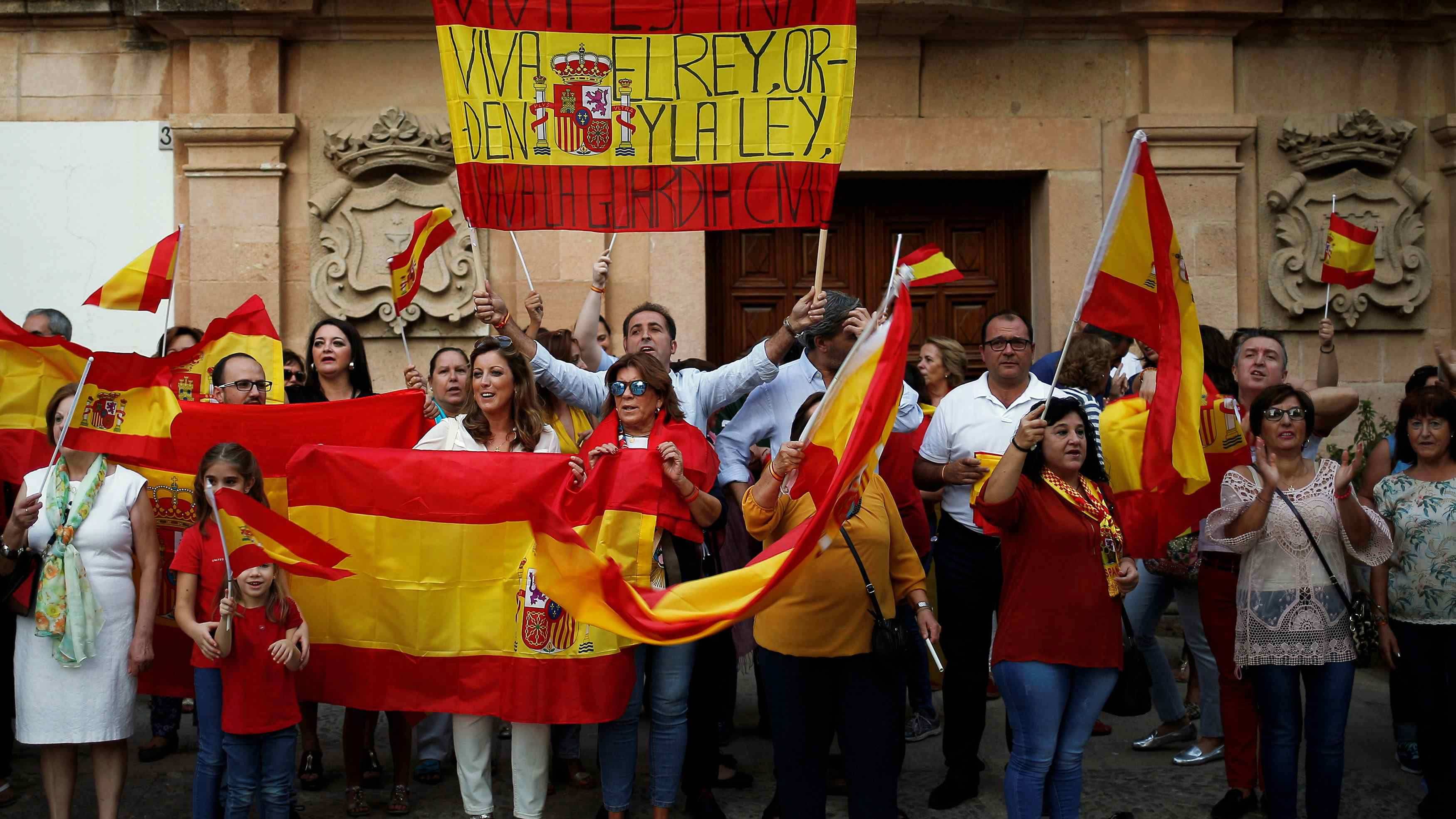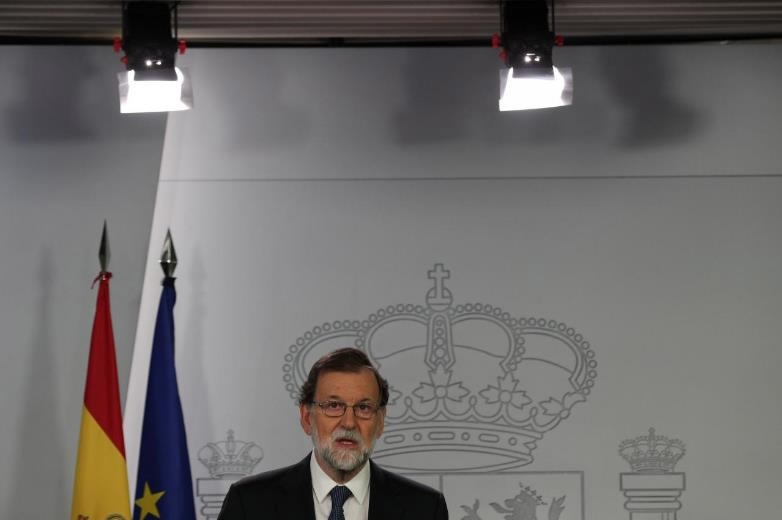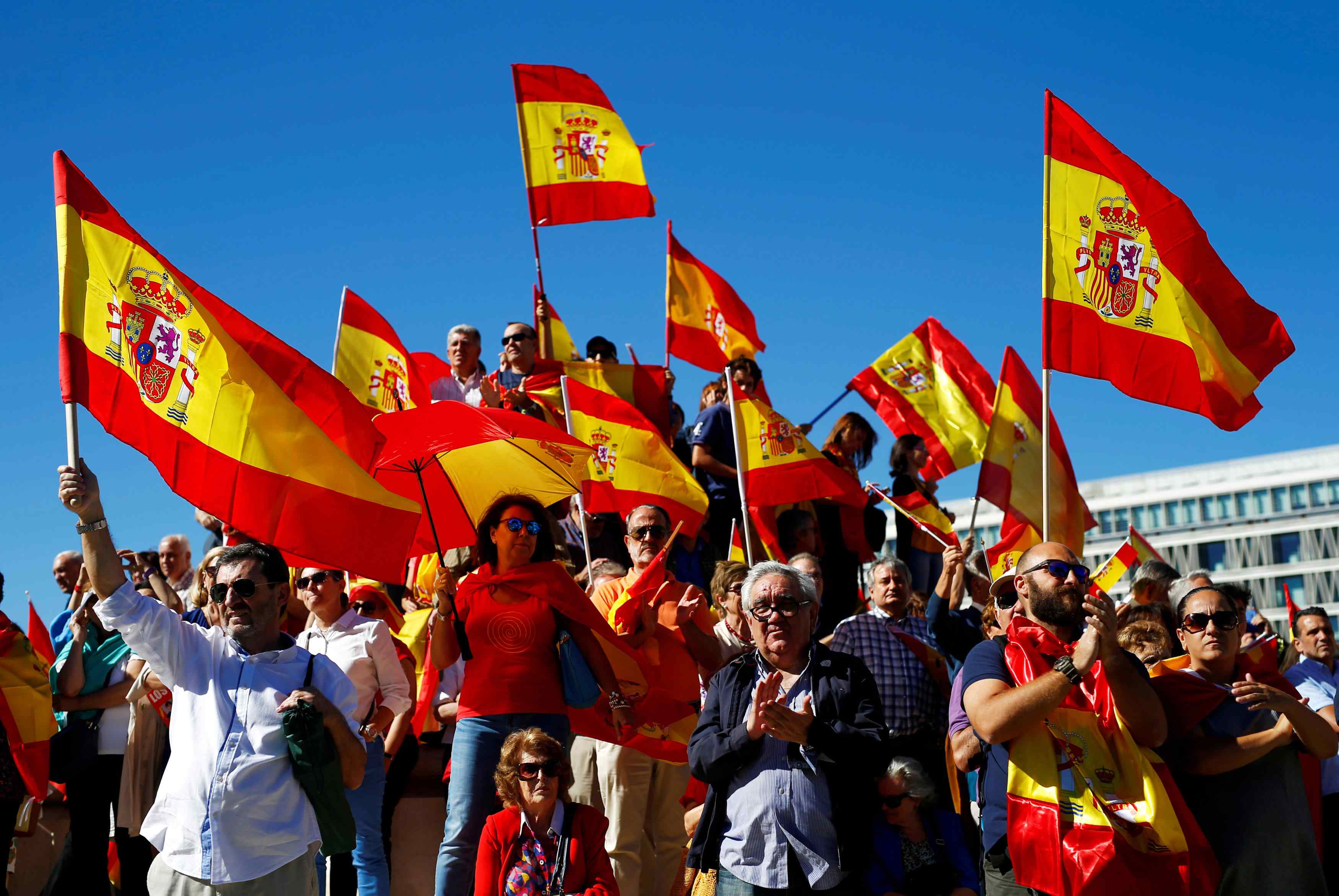
Politics
21:09, 07-Oct-2017
Catalan vote: Thousands rally for unity across Spain
CGTN

As the Spanish region of Catalonia controversially pursues independence, thousands gathered dressed in white and carrying banners calling for peace and dialogue between leaders, in peaceful protests across 50 Spanish cities on Saturday morning.
In Barcelona, protesters chanted "let's talk" in Catalan, while many carried signs criticizing political leaders for not finding a diplomatic solution to the impasse.
Meanwhile, Spanish Prime Minister Mariano Rajoy said on Saturday he would not rule out using constitutional powers to remove Catalonia's autonomous status if it claimed independence as tens of thousands took to the streets to call for talks.
The wealthy northeastern region of Catalonia, with its own language and culture, held a referendum on October 1 on independence, in defiance of the Spanish constitutional court which had ruled the vote illegal.
Until now, Rajoy has remained vague on whether he would use article 155, the so-called nuclear option, of the constitution which enables him to sack the regional government and call a fresh local election.

Spain's Prime Minister Mariano Rajoy delivers a statement at the Moncloa Palace in Madrid, Spain, October 1, 2017. /Reuters Photo
Spain's Prime Minister Mariano Rajoy delivers a statement at the Moncloa Palace in Madrid, Spain, October 1, 2017. /Reuters Photo
In an interview with Spanish newspaper El Pais, Rajoy was asked if he was ready to trigger article 155, and he said: "I don't rule out absolutely anything that is within the law ... Ideally, it shouldn't be necessary to implement extreme solutions but for that not to happen things would have to be changed."
The crisis is a political test for Rajoy, who has been uncompromising. Some 900 people were injured during the vote when police tried to disrupt voting, firing rubber bullets and charging crowds with truncheons.
The political stand-off has divided the country, pushed banks and companies to move their headquarters outside Catalonia and shaken market confidence in the Spanish economy, prompting calls from the European Commission for Catalan and Spanish leaders to find a political solution.
EU concern
Rajoy's government mobilized thousands of national police to stop Sunday's vote, leading to clashes with would-be voters as they tried to close polling stations in schools and remove ballot boxes.
In the El Pais interview, Rajoy said the around 4,000 extra police shipped in to the region would stay until the conflict had been resolved.
The police violence drew widespread condemnation and forced the government to issue an apology on Friday, although tensions continued to rise after reports of plans for the Catalan parliament to vote on a unilateral declaration of independence on Tuesday.

People wave Spainish national flags at a pro-union demonstration in Madrid, October 7, 2017. /Reuters Photo
People wave Spainish national flags at a pro-union demonstration in Madrid, October 7, 2017. /Reuters Photo
The crisis has also caused disquiet among Spain's European Union partners, and German Chancellor Angela Merkel has discussed it with European Commission President Jean-Claude Juncker, an EU official told Reuters.
Concern is growing in EU capitals about the impact of the crisis on the Spanish economy, the fourth largest in the euro zone, and on possible spillovers to other economies.
European finance ministers, gathering in Brussels on Monday and Tuesday for a regular meeting, could discuss the issue, although it is not formally on the agenda, EU officials said.
The support given in public statements by EU leaders to Rajoy is combined with concern expressed in private about how the Spanish government's use of police to prevent Catalans from voting last week in the independence referendum could backfire.
Some EU states are worried that talk of Catalan independence could fuel secessionist feelings in other parts of Europe.
Source(s): Reuters

SITEMAP
Copyright © 2018 CGTN. Beijing ICP prepared NO.16065310-3
Copyright © 2018 CGTN. Beijing ICP prepared NO.16065310-3